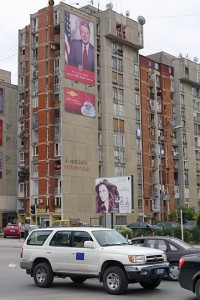Ghost Countries
If there’s a place in the world that has its own territory, its own military, police force, flag, government, institutions, and everything else, and is not currently at war with its neighbors, isn’t that a country? What if everyone closes their eyes, covers their ears and says “lalalalala, I don’t see you,” does that invalidate it?
There are 193 universally recognized sovereign states in the world. And then there are 10 “almost” countries. Some of these are well known: Taiwan, Palestine and Kosovo in particular, the latter two due to their prominence in recent international news. Northern Cyprus is another.
But then there are those that almost no one has ever heard of. Some of these I found out about only while in the country next door. For instance, have you heard of the following countries: Abkhazia (claimed by Georgia), Nagorno-Karabakh (claimed by Azerbaijan), Sahrawi Arab Democratic Republic (claimed by Morocco), Somaliland (claimed by Somalia), South Ossetia (claimed by Georgia), or Transnistria (claimed by Moldova)?
Yet these are independent entities. Some have been diplomatically recognized by no other country, some by only a few, and some by a few dozen. But diplomatic recognition or not, these are for all intents and purposes real countries (officially they’re either called de facto or de jure countries).
The picture above is from Prishtina, capital of the de jure country of Kosovo.

 Click to subscribe via RSS feed
Click to subscribe via RSS feed

Actually, Kosovo is only a de facto country, not de jure. The recognition of Kosovo as an independent country by a bunch of governments (USA, France, Switzerland, etc.) does not turn it into an independent state. Same for Russia’s and Nicaragua’s recognition of South Ossetia and Abchasia. They have de facto governments. But from a legal standpoint (de jure), they are still part of Georgia until the latter recognizes their independence, since we are not talking about a context of decolonization here, where different rules would apply.
Thanks for the clarification, Pablo.